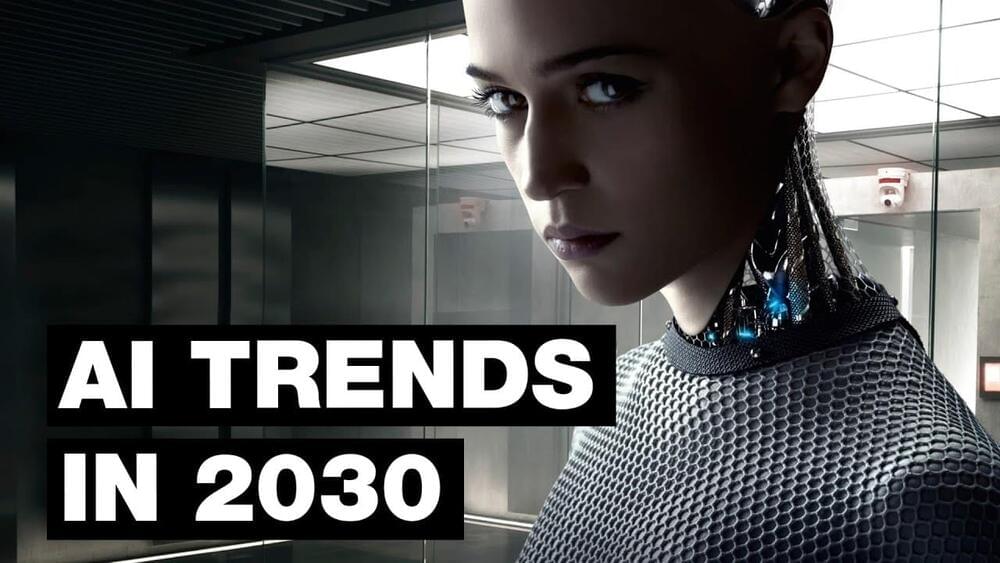Jan 27, 2022
Tesla Confirms: First Cars From Giga Berlin Will Use 2170 Cells
Posted by Shubham Ghosh Roy in category: transportation
Tesla released an update regarding the Tesla Giga Berlin-Brandenburg plant in Grünheide near Berlin, Germany.

Tesla released an update regarding the Tesla Giga Berlin-Brandenburg plant in Grünheide near Berlin, Germany.
Country’s top two utility operators make massive investments in green energy
China said it will continue accelerating domestic grid network construction this year with a focus on ultrahigh-voltage power transmission networks.
It will mark an attempt to further ensure power supply stability and boost green power consumption in the country.
Physicists must swing between crafting the mind-bending ideas about reality that make up theories and advancing technologies to the point where new experiments can test those theories. 2021 was a big year for advancing the experimental tools of physics.
First, the world’s largest particle accelerator, the Large Hadron Collider at CERN, was shut down and underwent some substantial upgrades. Physicists just restarted the facility in October, and they plan to begin the next data collection run in May 2022. The upgrades have boosted the power of the collider so that it can produce collisions at 14 TeV, up from the previous limit of 13 TeV. This means the batches of tiny protons that travel in beams around the circular accelerator together carry the same amount of energy as an 800,000-pound (360,000-kilogram) passenger train traveling at 100 mph (160 kph). At these incredible energies, physicists may discover new particles that were too heavy to see at lower energies.
Some other technological advancements were made to help the search for dark matter. Many astrophysicists believe that dark matter particles, which don’t currently fit into the Standard Model, could answer some outstanding questions regarding the way gravity bends around stars – called gravitational lensing – as well as the speed at which stars rotate in spiral galaxies. Projects like the Cryogenic Dark Matter Search have yet to find dark matter particles, but the teams are developing larger and more sensitive detectors to be deployed in the near future.
Though Meta didn’t give numbers on RSC’s current top speed, in terms of raw processing power it appears comparable to the Perlmutter supercomputer, ranked fifth fastest in the world. At the moment, RSC runs on 6,800 NVIDIA A100 graphics processing units (GPUs), a specialized chip once limited to gaming but now used more widely, especially in AI. Already, the machine is processing computer vision workflows 20 times faster and large language models (like, GPT-3) 3 times faster. The more quickly a company can train models, the more it can complete and further improve in any given year.
In addition to pure speed, RSC will give Meta the ability to train algorithms on its massive hoard of user data. In a blog post, the company said that they previously trained AI on public, open-source datasets, but RSC will use real-world, user-generated data from Meta’s production servers. This detail may make more than a few people blanch, given the numerous privacy and security controversies Meta has faced in recent years. In the post, the company took pains to note the data will be carefully anonymized and encrypted end-to-end. And, they said, RSC won’t have any direct connection to the larger internet.
To accommodate Meta’s enormous training data sets and further increase training speed, the installation will grow to include 16,000 GPUs and an exabyte of storage—equivalent to 36,000 years of high-quality video—later this year. Once complete, Meta says RSC will serve training data at 16 terabytes per second and operate at a top speed of 5 exaflops.
If you are a scientist, willing to share your science with curious teens, consider joining Lecturers Without Borders!
Established by three scientists, Luibov Tupikina, Athanasia Nikolau, and Clara Delphin Zemp, and high school teacher Mikhail Khotyakov, Lecturers Without Borders (LeWiBo) is an international volunteer grassroots organization that brings together enthusiastic science researchers and science-minded teens. LeWiBo founders noticed that scientists tend to travel a lot – for fieldwork, conferences, or lecturing – and realized scientists could be a great source of knowledge and inspiration to local schools. To this end, they asked scientists to volunteer for talks and workshops. The first lecture, delivered in Nepal in 2017 by two researchers, a mathematician and a climatologist, was a great success. In the next couple of years, LeWiBo volunteers presented at schools in Russia and Belarus; Indonesia and Uganda; India and Nepal. Then, the pandemic forced everything into the digital realm, bringing together scientists and schools across the globe. I met with two of LeWiBo’s co-founders, physicist Athanasia Nikolaou and math teacher Mikhail Khotyakov, as well as their coordinator, Anastasia Mityagina, to talk about their offerings and future plans.
Julia Brodsky: So, how many people volunteer for LeWiBo at this time?
Continue reading “How Lecturers Without Borders Shares The Joy Of Science” »
Gale crater on mars, a haven for life?
Light Carbon, Organic Molecules, and Habitats with Liquid Water.
A group of genes that play an essential role in building components of our cells can also impact human lifespan, finds a new study led by UCL researchers. The genes have previously been found to extend lifespan in small organisms, such as making fruit flies live 10% longer, but this is the first.
MIT physicists have discovered a new quantum bit, or “qubit,” in the form of vibrating pairs of atoms known as fermions. They found that when pairs of fermions are chilled and trapped in an optical lattice, the particles can exist simultaneously in two states—a weird quantum phenomenon known as superposition. In this case, the atoms held a superposition of two vibrational states, in which the pair wobbled against each other while also swinging in sync, at the same time.
A neural network identified a majority of anonymous mobile phone service subscribers using details about their weekly social interactions.

Human like robots for lonely old men.
This video covers 10 artificial intelligence trends that will exist in 2030.
► Jarvis AI: Write 5x Faster With Artificial Intelligence: https://bit.ly/3HbfvhO
► BlockFi: Get Up To $250 In Bitcoin: https://bit.ly/3rPOf1V
► M1 Finance: Open A Roth IRA And Get Up To $500: https://bit.ly/3KHZvq0
► Udacity: 75% Off All Courses (Biggest Discount Ever): https://bit.ly/3j9pIRZ
► Business Ideas Academy: Start A Business You Love: https://bit.ly/3KI7B1S
Continue reading “⏩ Artificial Intelligence in 2030: 10 Future Trends” »
